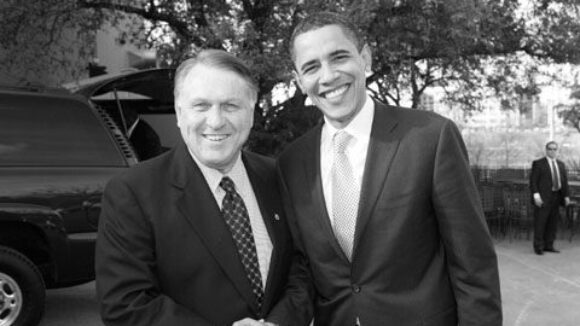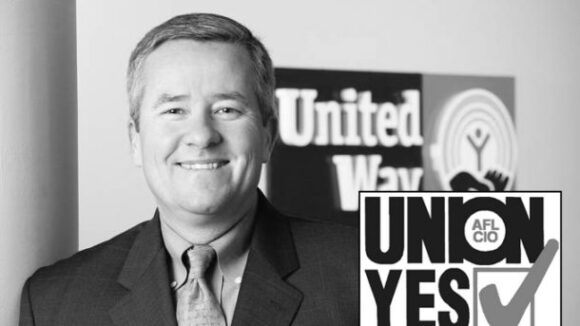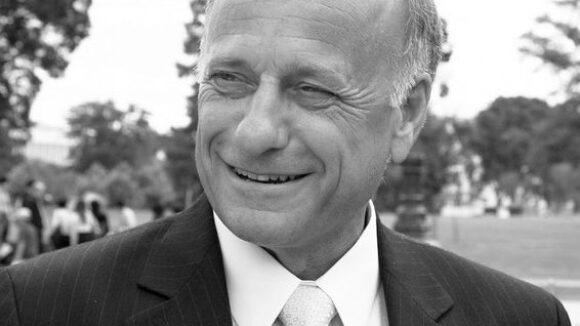Barack Obama Sees No Taint in Teamster Brass
Despite a judge's recent finding that Teamster chieftain Jim Hoffa "raided the Teamster treasury to try to buy his own reelection support with jobs and pensions," President Obama continues doggedly courting Mr. Hoffa's support. Credit: mediatumblr.com Presidential Pal Jim Hoffa Recently Tried to Bribe Union Rivals (Source: January 2012 National Right to Work Committee Newsletter) For decades, Inside-the-Beltway politicians have again and again sullied themselves and the American public's view of how Washington, D.C., works by turning a blind eye to Teamster union-boss corruption. Undoubtedly, the best-known example is the Nixon Administration's 1971 decision to pardon Teamster czar Jimmy Hoffa well before he had served out his 13-year sentence for mail fraud and attempted bribery of a federal jury. More recently, the George W. Bush Administration publicly toyed from 2001 to 2003 with cutting an outrageous deal to end federal oversight over the Teamsters, even as major cases of ongoing rampant Teamster-boss corruption and orchestration of strike violence were making national news. (Thanks largely to the fierce and vocal opposition of citizens who support the rule of law, the Bush Administration never actually cut the deal.) And now it is Democratic President Barack Obama who is practicing the "old politics" of coddling corrupt Teamster officials in exchange for Teamster forced dues-funded "in-kind" campaign support as Mr. Obama prepares for a potentially tough re-election bid this fall. Barack Obama and Teamster Kingpin Are 'Like Tweedledum and Tweedledee' As opinion writer and blogging maven Michelle Malkin pointed out in one of her syndicated columns early last fall, Mr. Obama and current Teamster President Jim Hoffa (the son of Jimmy, who disappeared in 1975 and is presumed dead) have over time become "like Tweedledum and Tweedledee," that is, inseparable.


